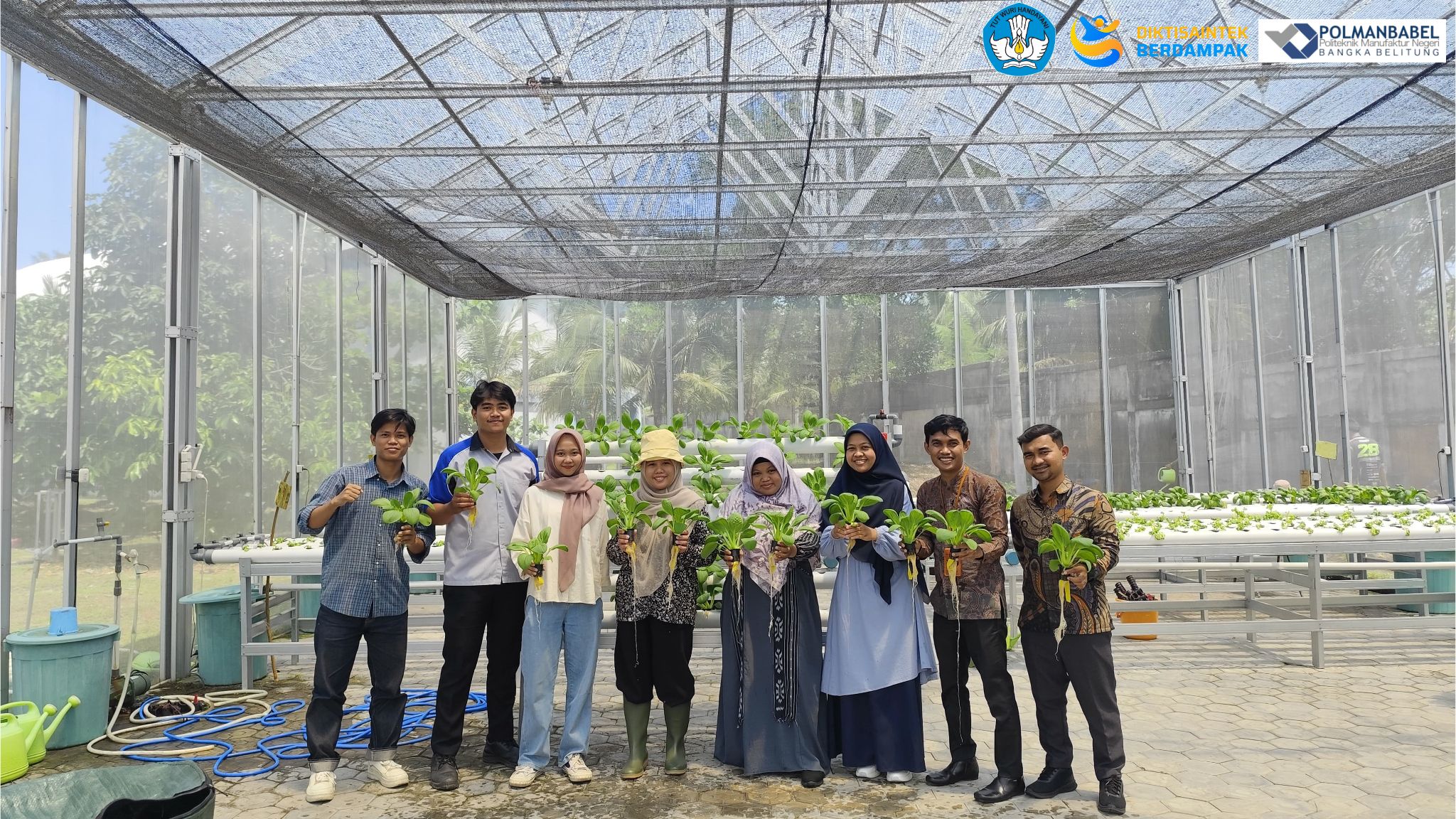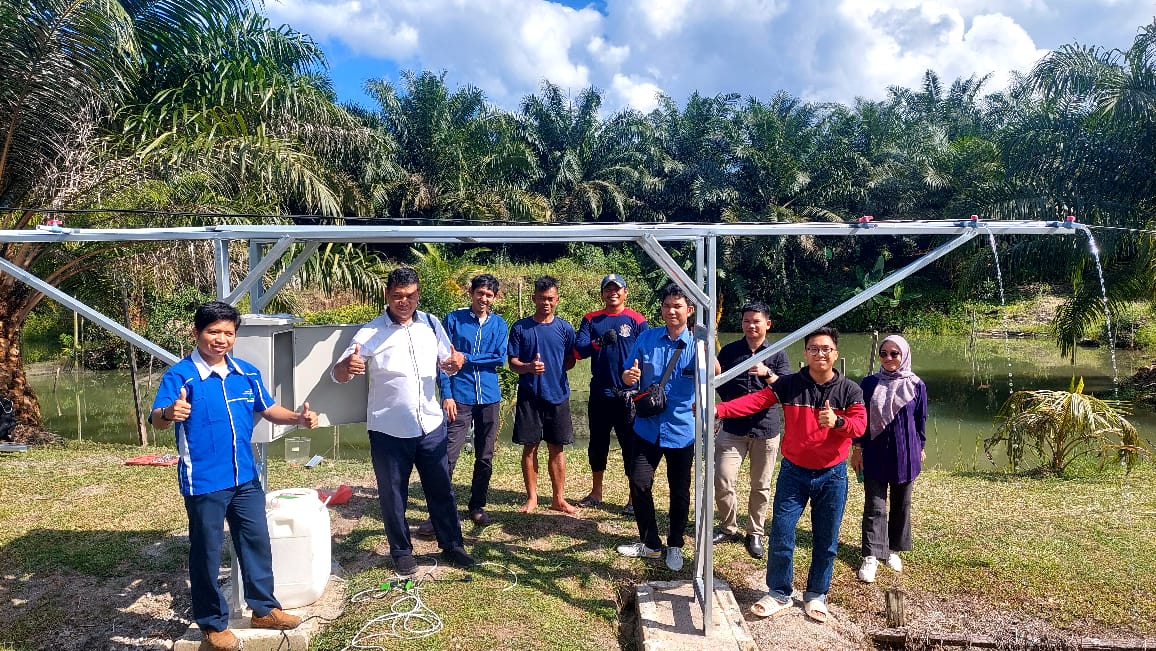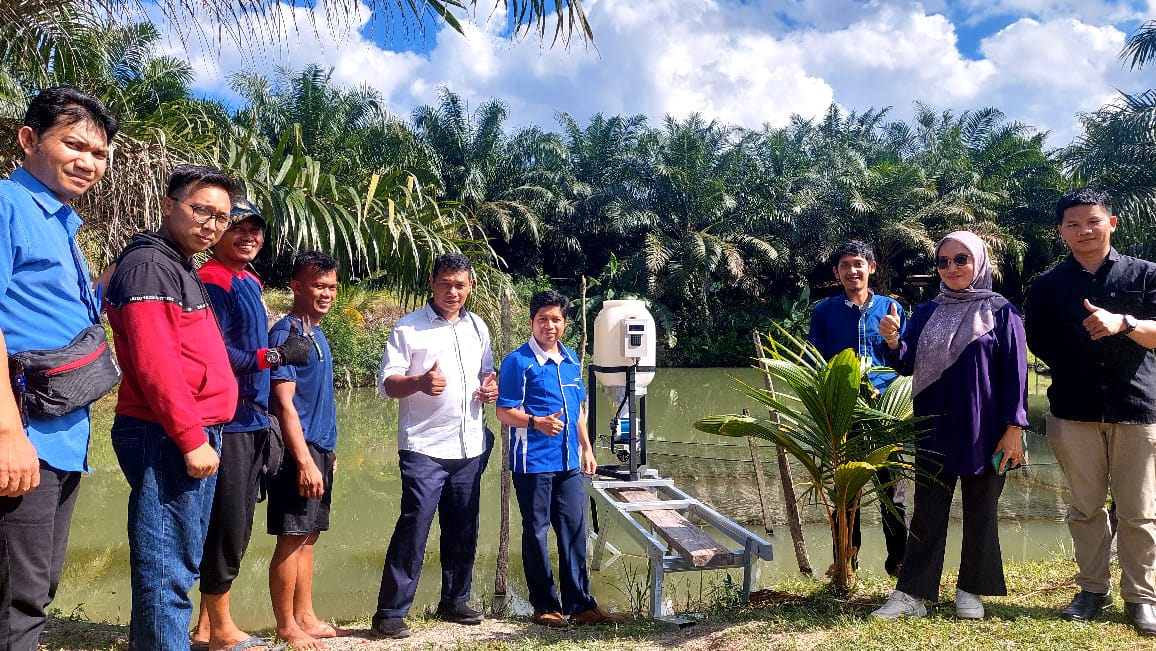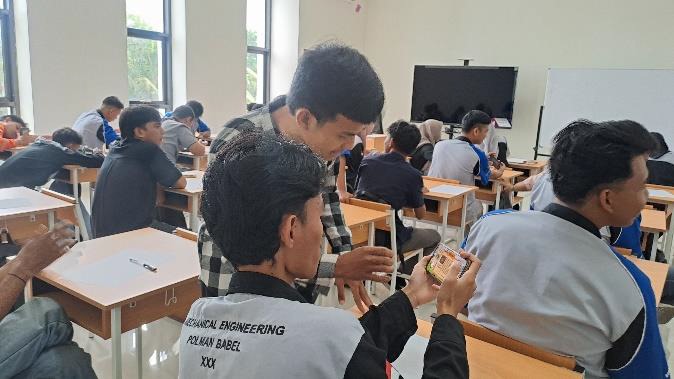A Team of Lecturers from Polman Negeri Babel Develops Smart Hydroponics, an IoT-Based Smart Farming Solution
A new era of modern agriculture has begun. A research team from the Bangka Belitung State Manufacturing Polytechnic (Polman Babel) has successfully developed a Smart Hydroponic Monitoring System, a breakthrough that transforms conventional hydroponic systems into an intelligent Internet of Things (IoT)-based system with sensor technology to monitor two crucial parameters in real time: nutrient status (PPM) and water volume in the reservoir, on Tuesday (October 7, 2025).
This research involved Polman Babel lecturers Better Swengky, S.Kom., M.Kom., Peprizal, M.Pd.T., and Lesta, M.Si., along with students Rian Ardiansyah, Yosar Leman, Dahlia Meylani, Aldian Kurniawan, and Sulistian, collaborating across the fields of electrical engineering and informatics.
When met in his office, Research Team Leader Better Swengky, S.Kom., M.Kom. "We explained that data from this system can be easily accessed through an Android application, providing complete control and certainty previously difficult to achieve with manual methods. This helps address classic hydroponic challenges such as nutrient fluctuations and the risk of water shortages, with accurate data that can be monitored from anywhere," he said.
According to him, this project not only broadens students' understanding of the technical complexities of modern hydroponics but also provides practical experience in applying electrical engineering to the agricultural world.
"Students learn firsthand how to regulate nutrients and implement sensors to support agricultural automation," he added.
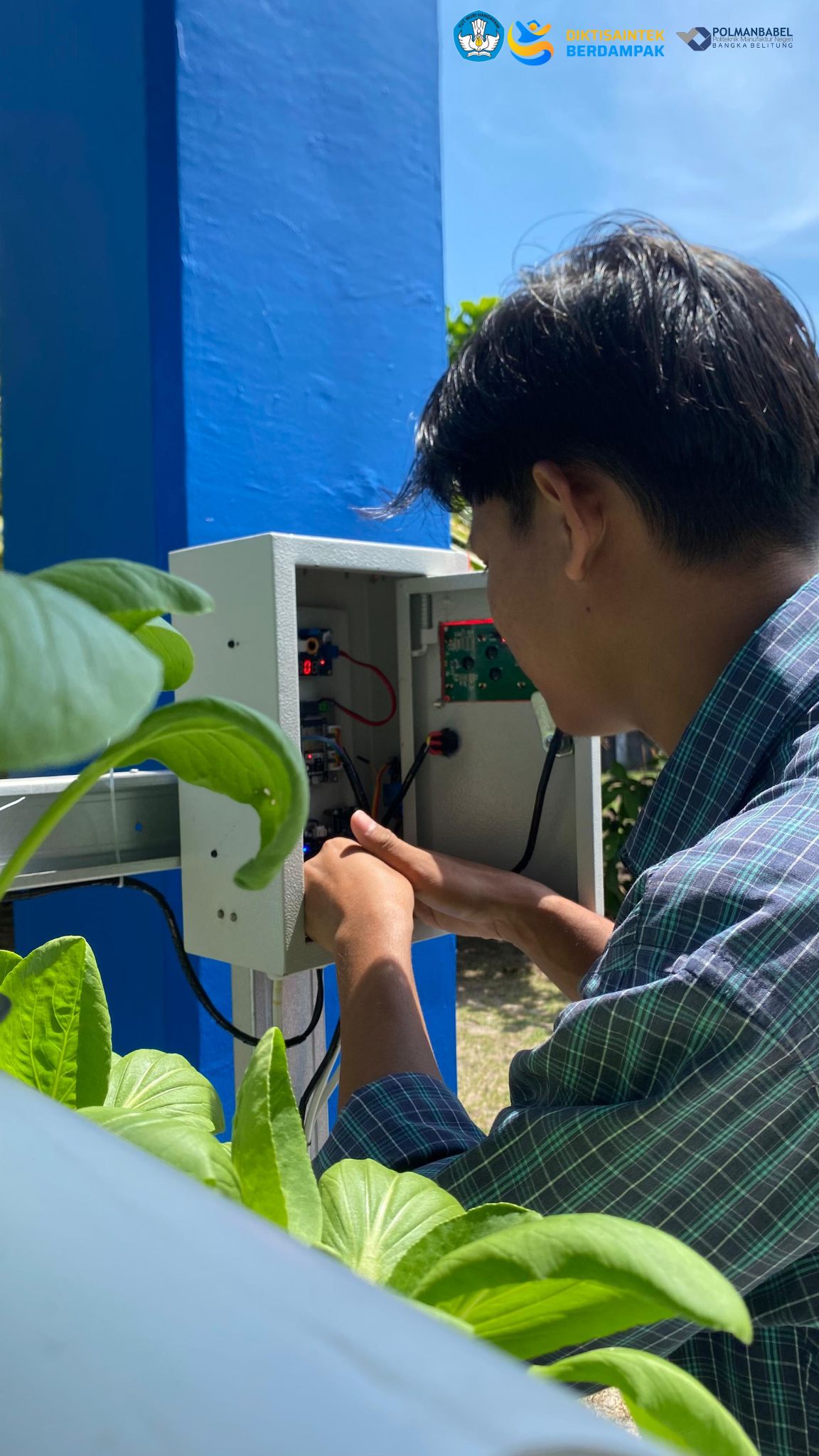
Another lecturer, Peprizal, M.Pd.T., stated that this system still has great potential for development. "In the future, this innovation can be refined into a smarter and more affordable system for adoption by the wider community and industry, so that this type of research can continue and students gain more real-world research experience," he explained.
He added that hands-on experience like this not only strengthens students' technical skills but also fosters their confidence to innovate. "Students learn to become true problem solvers in the field of applied engineering," he said.
Meanwhile, Lesta, M.Sc., expressed her high appreciation for the dedication of all team members. She assessed the success of the development of the Smart Hydroponic Monitoring System in providing concrete solutions to drive efficiency and transformation in the modern agricultural sector.
"Because this research is able to bridge IoT technology with the world of agriculture, providing a system that is not only innovative but also widely beneficial," she said.
Furthermore, the research team expressed its gratitude for the funding support through the 2025 Ministry of Education, Science, and Technology's BIMA Grant program, which served as a crucial catalyst in the development of this research and the prototyping of this system.
"Going forward, we will continue to refine this system so that it can be widely used, not only by hydroponic hobbyists but also by young farmers, who can contribute to building independent, intelligent, and sustainable national food security," he said.
In other words, this research is the first step toward a more precise, efficient, and connected urban agricultural ecosystem that serves as a bridge between science and field practice, and also a crucial foundation for precision agriculture in the era of the Fourth Industrial Revolution," he emphasized.
